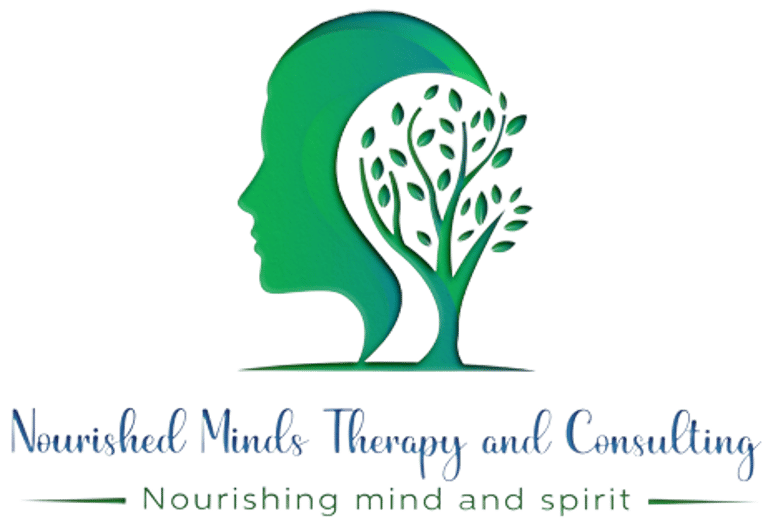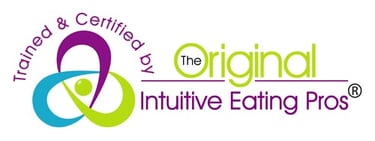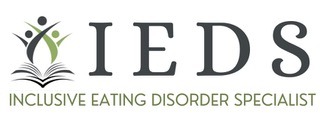

When we think of trauma, images of acute, life-altering experiences often come to mind—situations that are clearly harmful and devastating. But not all trauma is loud and immediate. Some forms seep into our lives quietly, wearing down our sense of self over time. Diet culture, with its restrictive food rules and hyper-focus on body shape, has woven itself into the fabric of everyday life, often masquerading as harmless or even beneficial. Yet, the psychological, emotional, and physical toll it can take mimics the insidious nature of chronic trauma, leaving lasting scars on our minds, bodies, and relationships.
Understanding Nutritional Trauma
The term “nutritional trauma” might sound unfamiliar or even surprising to some, but it's a fitting descriptor for the prolonged stress, anxiety, and self-loathing that result from following restrictive food rules. Just like any form of chronic trauma, nutritional trauma occurs when we experience repeated harm to our sense of safety, worth, and wellbeing—this time, through our relationship with food and our bodies.
Dieting and restrictive eating may appear innocuous at first glance. Society often portrays them as acts of self-improvement or health-conscious behavior. But beneath the facade of wellness lies a system of control that tells us that our bodies are flawed, that they need to be manipulated and shrunk (or sculpted) to be acceptable. Over time, this internalized belief takes its toll, not just on our mental and emotional health, but on our physical bodies and relationships with others.
The Mind: Cognitive Distortions and Emotional Turmoil
Diet culture instills a deep-seated belief that our worth is inherently tied to our appearance. Please read that again.
Diet culture, at its core, tells us that if we are not getting the results we want (think of all the before and after pictures almost any wellness trend touts), then we are not acting, working, and simply existing the "right way." This belief alone sets the stage for cognitive distortions that parallel those seen in other forms of chronic trauma. For instance, people who follow rigid diets often experience all-or-nothing thinking—a hallmark of trauma. Foods are categorized as "good" or "bad," and individuals often judge their entire sense of worth based on whether they adhered to the "good" foods that day. If they stray, guilt, shame, and self-hatred creep in, often leading to a cycle of binging and further restriction.
This black-and-white thinking leaves no room for compassion, self-acceptance, or flexibility. Diet culture demands that we ultimately suppress or ignore our natural bodily signals of hunger and fullness, convincing us that our bodies cannot be trusted. Much like other trauma, this disconnect between body and mind fosters an environment where feelings of anxiety, depression, and shame can fester.
The long-term effects on the mind mirror what we see in people dealing with other forms of chronic stress or trauma. Hypervigilance—constantly monitoring calories, portions, or the "cleanliness" of food—becomes a norm. Just as individuals with PTSD may feel the need to stay alert to perceived dangers in their environment, those entrenched in diet culture may feel compelled to remain hyper-aware of their food intake, fearing the consequences of losing control.
The Body: A War on Its Natural State
Our bodies are incredibly intelligent systems. They send us hunger cues when we need fuel, signal satiety when we've had enough, and even know how to metabolize various nutrients based on what we've consumed. But diet culture teaches us to fight against these signals, essentially telling our bodies that they can't be trusted.
This ongoing battle against our natural instincts becomes a form of bodily trauma, akin to physical deprivation. Research has shown that when people engage in restrictive eating, the body perceives it as a state of emergency—similar to starvation. In response, it slows down metabolism, increases cravings for high-calorie foods, and stores fat more efficiently as a way to protect itself from future periods of restriction. This is a survival mechanism, but it's often interpreted by dieters as failure, leading to more extreme restrictions, a vicious cycle that mirrors the body’s response to chronic trauma.
In addition to metabolic changes, the physical stress of nutritional trauma manifests in other ways: disrupted sleep patterns, fatigue, digestive issues, weakened immune function, and irregular menstrual cycles in those who menstruate. The body is constantly on edge, deprived of the nourishment and care it needs, which echoes the effects of trauma on the nervous system.
Overall Wellbeing: An Erosion of Self-Trust and Joy
Dieting doesn’t just affect what we eat; it affects how we live (or don't live). Much like trauma survivors, people who adhere to diet culture's rigid rules often lose their sense of agency and self-trust. They're taught that the path to health, happiness, and self-worth lies in the control of their body size. Instead of focusing on their intrinsic needs or joy, they become consumed with external measures of success: the number on the scale, the size of their clothes, or their ability to follow the "right" diet plan.
The pursuit of thinness becomes a full-time job, robbing people of the ability to fully engage with their lives. The simple joy of sharing a meal with friends or indulging in a favorite dish becomes fraught with anxiety and guilt. Social events may be avoided, family traditions shunned, all to maintain the illusion of control over one’s body. This is similar to how trauma isolates individuals from their communities, causing them to withdraw out of fear or shame.
What's even more damaging is that diet culture often promotes this cycle of self-denial as a virtue, convincing us that the more we deprive ourselves, the more disciplined and worthy we are. This message is particularly insidious because it hijacks the concept of "health" to justify harm, much like gaslighting in abusive relationships. Over time, this chronic state of deprivation leaves people feeling disconnected from themselves and their communities, unable to trust their own instincts or desires.
Relationships: The Unspoken Costs of Food Control
Trauma doesn’t just affect the individual; it reverberates outwards, shaping the way we relate to others. Diet culture is no different. When someone is entrenched in restrictive eating or constantly concerned about their body, their relationships with others suffer.
At the interpersonal level, constant preoccupation with food and body image can create emotional distance. Friends and family may feel excluded from shared meals or social outings, while the person dieting might isolate themselves to avoid situations where their food choices are questioned. The language of diet culture—commenting on weight, portion sizes, or food choices—often permeates conversations, fostering an environment where bodies are judged and food is moralized. This not only causes harm but also perpetuates the same cycle of restriction and shame in those around us.
For parents, the impact of diet culture can be even more profound. Children are incredibly perceptive, and they absorb messages about body image and food from an early age. Parents who are preoccupied with dieting, weight loss, or “clean eating” may unknowingly pass these harmful messages onto their children, setting the stage for another generation to experience the same nutritional trauma.
Much like the cycle of trauma in other contexts, the effects of diet culture are passed down through families, communities, and cultures. It’s not just an individual experience; it’s a collective one.
Healing from Nutritional Trauma
Recognizing diet culture as a form of chronic trauma is such an important part of the healing process. Just as trauma recovery involves rebuilding trust in oneself and re-establishing safety, healing from nutritional trauma requires reclaiming trust in our bodies and food. This begins, in my strong opinion, by rejecting the external rules and standards imposed by diet culture and learning to listen to the internal wisdom of our bodies.
Intuitive eating, a framework that encourages listening to hunger and fullness cues without judgment, can be an essential tool in this process. It teaches us to make peace with food, reject the diet mentality, and honor our body’s natural rhythms. Intuitive eating isn’t about controlling the body; it’s about reconnecting with it, allowing us to eat in a way that nourishes both our physical and emotional selves.
Healing from nutritional trauma also involves dismantling the toxic beliefs that uphold diet culture—recognizing that our worth is not tied to our appearance, that health is multifaceted and individual, and that food is not a moral issue. This requires patience, self-compassion, and often professional support, particularly for those who have spent years or even decades immersed in the trauma of dieting.
Taking Back Control and Autonomy
The impact of diet culture is far from harmless. The restrictive rules and dangerous beliefs it promotes can inflict the same kind of chronic harm as any other form of trauma, damaging our sense of self, damaging our bodies, and isolating us from the people we care about. But just as with other forms of trauma, healing is possible. By rejecting diet culture and embracing a more compassionate, intuitive approach to food and our bodies, we can begin to get ourselves out of the cycle of nutritional trauma and take back agency over our lives and our own unique wellness needs.
If you are interested in learning how Nourished Minds Therapy can assist you on this journey, consultations are always free.






